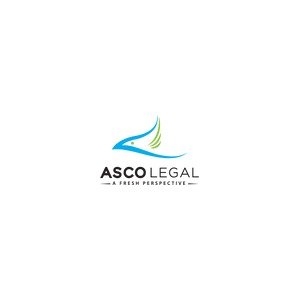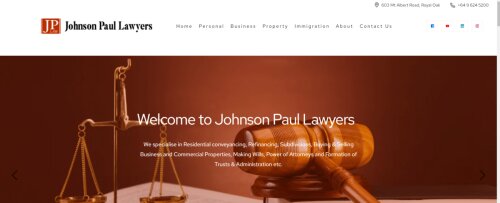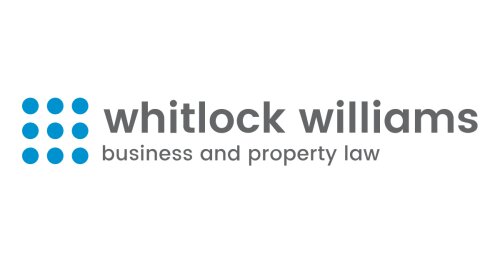Best Land Use & Zoning Lawyers in Auckland
Share your needs with us, get contacted by law firms.
Free. Takes 2 min.
Free Guide to Hiring a Real Estate Lawyer
List of the best lawyers in Auckland, New Zealand
About Land Use & Zoning Law in Auckland, New Zealand
Land Use & Zoning in Auckland, New Zealand, are governed by a combination of national policies and local regulations. The primary governing body is Auckland Council, which formulates the Auckland Unitary Plan, a major regulatory document outlining land use and zoning rules. The Plan dictates how land can be used, developed or subdivided in the Auckland Region. It covers aspects like density, height limitations, environmental protection, heritage conservation and usage restrictions for different zones.
Why You May Need a Lawyer
Understanding these laws can be complex and challenging due to the interplay of national and local regulations. Legal support is often required when performing property transactions, seeking permissions, understanding the obligations or effects of a zoning change in an area, dispute resolution over land use rights, developing property or dealing with councils for resource consent. As these matters can impact property value and owner rights, it's crucial to consult a lawyer experienced in this domain.
Local Laws Overview
The chief local law relevant to Land Use & Zoning in Auckland is the Auckland Unitary Plan. The Plan consists of zoning rules, overlays, precincts, development controls, and a variety of other stipulations impacting land use. These rules dictate how every piece of land in Auckland can be utilized and developed. The Plan also covers special areas of significant ecological value or cultural heritage to ensure their preservation. For waterfront areas or coastal properties, additional restrictions may apply under the Coastal Zone.
Frequently Asked Questions
What is the Auckland Unitary Plan?
The Auckland Unitary Plan is a comprehensive document that governs land use, development constructs, zoning rules, and overlays in Auckland. It's a principal guide for Auckland’s growth and development for the next 30 years.
What is zoning?
Zoning is a planning control tool used to regulate land use and development. Zoning laws determine what kind of structures can be built on particular parcels of land. In Auckland, common zones include residential, commercial, and industrial.
What is resource consent?
Resource consent is a permit from the council that allows certain activities or uses of land. These might be contrary to zoning rules, but permitted after evaluating the impacts on the environment and community.
What if my property’s zoning changes?
If your property’s zoning changes, it may affect what you can do with your property and its market value. Consulting a land-use lawyer can help understand these implications.
Can I object or give feedback on a proposed zoning change?
Yes, local councils often seek public submissions or feedback on proposed zoning changes. The procedure, however, can be complex and it may be beneficial to engage a lawyer.
Additional Resources
You may find valuable resources on websites of the Auckland Council, the New Zealand Ministry for the Environment, and urban planning sections of the local library. These sources can provide useful context and specific rules applicable to your queries.
Next Steps
If you need legal assistance with land use & zoning matters in Auckland, begin by gathering all relevant documents such as property details, zoning maps, regulations etc. Next, seek a reputable lawyer with experience in Auckland's Land Use & Zoning laws for consultation. They’ll guide you through your options and potential legal procedures.
Lawzana helps you find the best lawyers and law firms in Auckland through a curated and pre-screened list of qualified legal professionals. Our platform offers rankings and detailed profiles of attorneys and law firms, allowing you to compare based on practice areas, including Land Use & Zoning, experience, and client feedback.
Each profile includes a description of the firm's areas of practice, client reviews, team members and partners, year of establishment, spoken languages, office locations, contact information, social media presence, and any published articles or resources. Most firms on our platform speak English and are experienced in both local and international legal matters.
Get a quote from top-rated law firms in Auckland, New Zealand — quickly, securely, and without unnecessary hassle.
Disclaimer:
The information provided on this page is for general informational purposes only and does not constitute legal advice. While we strive to ensure the accuracy and relevance of the content, legal information may change over time, and interpretations of the law can vary. You should always consult with a qualified legal professional for advice specific to your situation.
We disclaim all liability for actions taken or not taken based on the content of this page. If you believe any information is incorrect or outdated, please contact us, and we will review and update it where appropriate.
















